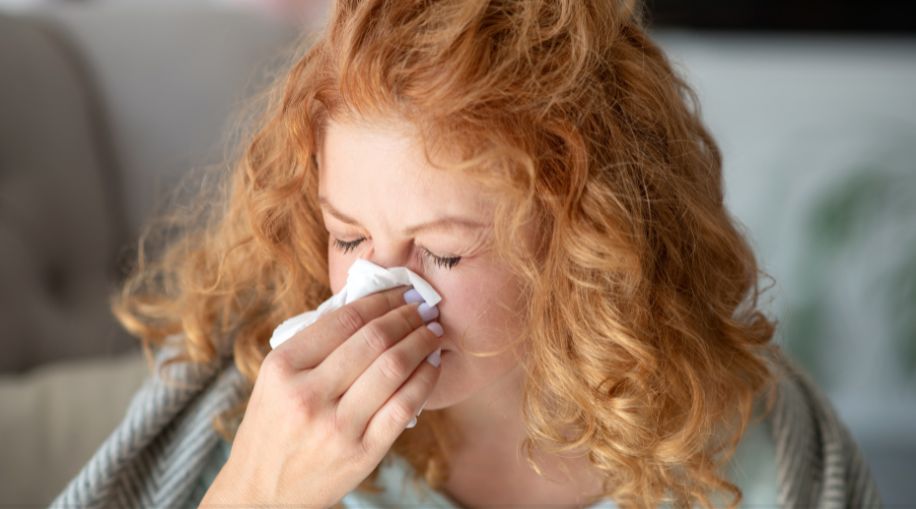Recognizing the Red Flags
Nasal polyps are soft, painless growths that can form in your nasal passages or sinuses. They can make it hard to breathe and can cause other health issues. To help, there's Fluticasone, a medication commonly used in the form of a nasal spray to treat nasal polyps and various allergic conditions.
10 Signs of Nasal Polyps
1. Stuffy Nose
A stuffy nose is a common sign of nasal polyps. You might feel like you can’t breathe through your nose, which can make you feel uncomfortable.
2. Runny Nose
If you have a runny nose that doesn’t seem to go away, it could be a sign of nasal polyps. This can happen when the polyps block your nasal passages.
3. Sinus Pressure
Nasal polyps can cause pressure in your face, especially around your eyes and forehead. This pressure can make you feel pain or discomfort.
4. Frequent Infections
People with nasal polyps often get sinus infections. If you notice that you keep getting sick, it might be due to nasal polyps blocking your sinuses.
5. Reduced Sense of Smell
If you notice that your sense of smell is weaker, it could be a sign of nasal polyps. The growths can block the smell receptors in your nose.
6. Snoring
Nasal polyps can lead to snoring because they make it harder to breathe at night. If you or someone else notices you snoring more, it could be due to polyps.
7. Headaches
You may experience headaches due to the pressure and blockage caused by nasal polyps. These headaches can be constant or come and go.
8. Bad Breath
If you have nasal polyps, you might notice a bad taste or bad breath. This can happen if mucus builds up and causes bacteria to grow.
9. Coughing
Nasal polyps can lead to post-nasal drip, where mucus drips down your throat. This can make you cough, especially at night or in the morning.
10. Fatigue
Living with nasal polyps can make you feel tired. If you have trouble sleeping or breathing, it can affect your energy levels throughout the day.
Treatments for Nasal Polyps
If you think you might have nasal polyps, it’s important to see a doctor. They can help diagnose and treat the problem. Here are some common treatments:
- Nasal steroid sprays: These can help reduce inflammation and shrink the polyps.
- Oral steroids: In some cases, doctors may prescribe steroids in pill form for a short time.
- Saline irrigation: Using a saline solution to rinse your nasal passages can help clear out mucus and allergens.
- Surgery: If polyps are large or don’t respond to other treatments, surgery may be needed to remove them.
- Allergy treatments: If allergies contribute to your nasal polyps, treating them can help reduce symptoms.
Fluticasone
Fluticasone is a corticosteroid medication often used as a nasal spray to treat nasal polyps by reducing inflammation in the nasal passages. This helps decrease the size of the polyps and improves breathing by reducing swelling and mucus production. Fluticasone is easy to use at home and is typically effective in relieving symptoms like nasal congestion, runny nose and sneezing. While it's generally well-tolerated, some users may experience side effects such as nasal irritation, nosebleeds or headaches. It's essential to follow your doctor's instructions for proper use to achieve the best results.
Taking Care of Your Nasal Health
Remember, it’s always best to talk to your doctor about your symptoms and the best treatment options for you. Taking care of your nasal health can help you breathe better and feel more comfortable.
